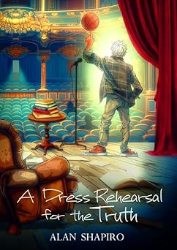It comes as no surprise that Naomi Cohn is a poet as well as an essayist: her debut book, The Braille Encyclopedia, demonstrates a keen attention to form. Like all encyclopedias, Cohn’s collection is organized alphabetically. Unlike most encyclopedias, it is lyrical, tender-hearted, and hard to put down.
Cohn was raised in Chicago by Jewish parents. As she writes in her first essay, “Academia,” her father was a cultural anthropologist and historian, and her mother, a linguist. As a result, she “grew up in a nest feathered with words, texts, and books.… We got splinters from the aging maple floors of our Hyde Park apartment while my father paid the mortgage with words.” Her next essay, “Awl,” introduces recurring character Louis Braille, a nineteenth-century French inventor who devised “a system of raised dots as a means of reading and writing for the blind” after he allegedly blinded himself with an awl as a child. These two essays alone encapsulate the main focuses of the collection: Cohn’s relationship to language — in particular, braille — and her reflections on altered sight.
After losing part of her vision to retinal neovascularization, a condition in which blood vessels grow in the retina, Cohn enrolled in vocational rehab, where she began to learn braille cell by cell. At first, she longed for books, for the joy of “all those beauties in the bookstore.” Now, though, she loves braille, difficult as it sometimes is for her to read and write. “When my fingers touch braille bumps,” she writes, “something moves in me.… Touching my reading educates me on my place in the world, weight of foot on ground, weight of bones and flesh in chair.”
Another language that appears in the book is Yiddish. One standout essay, titled “Oyg,” features a Yiddish idiom that an Iowa man once uttered to Cohn’s immigrant grandfather in the early 1900s. And in the final essay, “Zutz,” Cohn uses a passed-down misspelling of zetz to describe the process of making dots in braille. Jewishness is central to the collection as a whole. In “Torah,” Cohn writes about the only Sefer Torah composed in braille, and in “Slivovitz,” she highlights the plum wine that her ancestors used to drink. When she makes it herself, using the fruit from her plum tree, “the plums and sugar and knuckle of lemon skin and spirit and cinnamon stick, rolled tight as a Torah, all evolve, dissolve into slivovitz.” Cohn adds that learning braille, like making plum wine, is “another patient fermentation.”
While Cohn’s diction is incredibly precise, throughout the book, she tries to unsettle the notion that language is ever decisive — a subversive and exciting point for an encyclopedia, the presumed authority on facts, to make. In the essay “Blind,” Cohn writes that the legal definition of blindness “misses most of the lived experience of altered sight.” That is why, for a long time, Cohn referred to her “eroding vision as illegal blindness.” She seems to be intimating that this definition does not account for the porousness of language and experience, an idea she revisits in “Legal”:
A legal line cuts between vision and blindness. A person takes certain eye tests. The results become a passport, making one a citizen of one country or another. Read eight small letters on a chart, and one is allowed to extend, for now, a stay in the country of sight. This makes as much sense as saying one side of a fish is in Mexico and the other in Texas.… Ravens, smoke from fires, slanting rain, all pass over borders without a thought.
The Braille Encyclopedia is a dynamic and attentive meditation on language, family, adaptation, the life and work of one inventor, and how altered vision can “make … colors and shapes speak more clearly.” Cohn is a dextrous, boundary-breaking writer, attuned to every cell in the body and on the page.
Kyra Lisse is a writer and editor from the Philadelphia area. Her work has been published in or is forthcoming from Ghost City Review, Sky Island Journal, SWWIM, New Voices, and Assay: A Journal of Nonfiction Studies, among other places. Kyra currently lives in Lancaster, PA.





